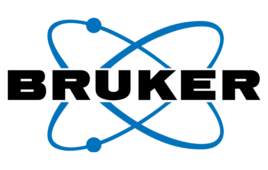 Kintara Therapeutics and TuHURA recently announced they entered into a definitive merger agreement.
Kintara Therapeutics and TuHURA recently announced they entered into a definitive merger agreement.
The agreement is an all-stock transaction that will form a company with the expertise and resources needed to advance a risk-diversified late-stage oncology pipeline. The transaction is expected to close in Q3 2024.
Kintara Therapeutics is a biopharmaceutical company investigating REM-001 in an NIH-sponsored and funded open-label study in metastatic breast cancer. TuHURA Biosciences is a Phase 3 registration-stage immune-oncology company developing technologies to overcome resistance to cancer immunotherapy.
The combined company will operate under the name TuHURA Biosciences and focus on advancing TuHURA’s personalized cancer vaccines and first-in-class bi-functional ADCS.
“Following a thorough review and evaluation of opportunities to rebuild value for Kintara shareholders, we believe merging with TuHURA, a Phase 3 immuno-oncology company focused in two compelling areas of research, represents the best path forward for our stockholders and has the potential to deliver near and long-term value. Our board believes that the combined company will be well-positioned to develop powerful new therapies with the potential to overcome resistance to current immunotherapies, an area of significant unmet need,” Kintara President and CEO Robert Hoffman said in a news release.
More about the proposed transaction
According to the agreement, pending approval from shareholders, after the merger, the equityholders of Kintara are projected to collectively possess around 2.85% of the common stock of the combined company on a fully diluted basis, which includes the contingent value rights (CVR). Including the shares underlying the CVR, this ownership is estimated to increase to approximately 5.45%.
TuHURA equityholders are expected to collectively own 97.15% of the common stock of the combined company on a fully diluted basis. If the CVR shares are factored in, their ownership would reduce to 94.55%.
Before the merger, shareholders who currently own Kintara common stock, specific holders of warrants, and certain preferred stockholders listed in Kintara’s records will receive a Contingent Value Right (CVR). This entitles the holder to receive shares of Kintara common stock in the future, based on the achievement of a specific milestone related to the CVR.
The CVR shares of Kintara will be distributed once a study enrolls and tracks 10 patients. This study aims to determine if using a lower dose of REM-001 produces a similar treatment effect to what was observed in previous REM-001 studies. After this study is finished, the company will look for opportunities to license out the technology or find a buyer for it.
The merger agreement has received approval from the boards of directors of both companies. However, it still needs to be approved by the shareholders of both companies and meet other usual closing requirements. The merger is anticipated to closed in the third quarter of this year.
How the leadership will shift post-merger
Following the merger, the combined company will be headquartered in Tampa, Florida. The executive offers will be James Bianco as president and CEO, and Dan Dearborn as CFO.
The merger agreement states that the board of directors will have five members, with four members designated by TuHURA and one member designated by Kintara.
TuHURA’s technology
TuHURA is developing technologies to overcome primary and acquired assistance, which the company says are two major obstacles to cancer immunotherapy’s ability to treat and cure cancer.
The company has Immune Fx (IFx) personalized cancer vaccines that use mRNA to “harness the power of the patient’s innate immune response.” Its IFx-2.0 will begin a Phase 3 trial as adjunctive therapy with the checkpoint inhibitor Keytruda to improve the tumor response rate compared to Keytruda alone in the first-line treatment of patients with advanced or metastatic Merkel cell carcinoma.
TuHURA is also developing bi-functional antibody-drug conjugates that target myeloid-derived suppressor cells to modulate their immunosuppressive effects on the tumor microenvironment.
“With IFx-2.0 readying to enter a single Phase 3 registration trial, we believe this is the optimal time for TuHURA to transition from a private company to a public company. This proposed merger with Kintara lets us achieve that goal while combining the resources of the two companies. Coupled with a $31 million subscribed financing by TuHURA in connection with the merger agreement, and which is expected to fund the combined company’s operations and development programs through late 2025, we believe this merger will also allow our combined company the flexibility to focus our resources and efforts on advancing IFx-2.0 to market and our other drug candidates toward human clinical trials,” TuHURA President and CEO James Bianco said. “This transaction with Kintara serves as a significant next step in our continued commitment to patients to develop novel therapies to overcome the major obstacles that limit the effectiveness of immunotherapies to treat and cure cancer.”





Tell Us What You Think!